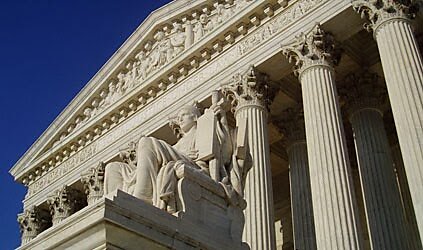The US Supreme Court will soon decide whether the president can use the International Emergency Economic Powers Act (IEEPA) to impose tariffs on imports from dozens of countries. That law was never meant for this purpose. Congress passed it in 1977 to let presidents freeze assets or restrict transactions during genuine emergencies, not to create a standing tariff authority that bypasses Congress. Trump’s lawyers now argue that without IEEPA tariffs the nation would be “defenseless,” as if the US economy depended on a single person’s power to raise import taxes.
The danger today is not complete Soviet-style isolation but a new trade cold war. Tariffs, export bans, and shifting rules are fragmenting global supply chains and eroding trust among allies. What begins as a push for “independence” can end in fragility with industries cut off from inputs, firms uncertain about future access to markets, and partners who stop believing U.S. commitments will hold. Self-reliance may sound patriotic, but it’s a costly illusion when national strength depends on open markets and credible rules.
If the Court invalidated the IEEPA tariffs tomorrow, almost nothing would change. From May through September 2025, when both “trafficking” and “reciprocal” tariffs were fully in force, customs duties totaled about 6 percent of federal receipts and less than 5 percent of outlays. The IEEPA tariffs account for only a fraction of that. Even if they disappeared overnight, the loss would be a few tenths of 1 percent of total federal revenue, smaller than routine swings in corporate tax payments.
If tariffs were truly the dividing line between rich and poor nations, history would show it. Instead, the United States became the world’s largest economy under lower tariffs and far greater openness to trade than it has today.
The IEEPA tariffs have not strengthened American security or prosperity. They were sold as leverage to force other countries into “reciprocal” trade deals. In practice they raised costs for U.S. firms, invited retaliation, and created compliance rules that even allies struggle to interpret.
Every credible study of the 2018–2019 tariffs found that US consumers and producers, not foreign exporters, bore the costs. The 2025 emergency tariffs have magnified those harms across a much larger share of trade, as shown in the amicus briefs separately filed by three Cato Institute trade scholars and by 43 economists, including me. Small firms faced the steepest hikes. Farmers lost markets abroad. Many companies delayed investment amid constant uncertainty about who or what might be targeted next.
Financial markets see what the administration will not see. Treasury yields barely moved on tariff announcements, showing that investors view them as fiscal noise. Equity markets, by contrast, rose whenever courts limited the tariffs. When the Court of International Trade blocked many of them in May, US stocks gained more than 1 percent the next day.
During the global financial crisis, exporters trading with partners bound by credible agreements performed far better than those exposed to arbitrary policy shifts. In research with Nuno Limão and Jeronimo Carballo, I found that such agreements act as insurance. They stabilize expectations and investment. When governments replace rules with discretion, they weaken growth and recovery.
That credibility matters most in a real emergency. During war, a pandemic, or a financial shock, countries depend on the reliability of their trading partners to secure critical supplies. The casual use of IEEPA tariffs, often overriding trade agreements the administration itself renegotiated, erodes trust. Once emergency powers become bargaining chips, partners stop believing that US commitments will hold when it counts. Trade “deals” struck under tariff threats offer no insurance against future crises; they simply postpone the next breakdown. Both sides expect the other to renege. Unable to hedge against the whims of any administration, firms keep their supply chains shallow and temporary by design.
If the Supreme Court strikes down the IEEPA tariffs, the outcome will not be national collapse but relief. Removing billions in unlawful import taxes would lower costs, reduce uncertainty, and signal that economic policy again operates within the law.
Even the government’s own projections assume future presidents could impose lawful tariffs under other statutes if necessary. The difference is that those laws contain procedural checks such as consultation with Congress, notice to trading partners, and time limits that prevent the kind of open-ended “emergency” now before the Court.
Far from making America defenseless, such a ruling would restore constitutional balance and credibility. Trade policy, with all its consequences, belongs within the limits Congress established, not at the discretion of one officeholder.
What would actually push the United States toward, as the president calls it, “Third World status” is the opposite of what he imagines: a government that finances itself through arbitrary import taxes undermines legal certainty and alienates allies and investors. The world’s largest economy does not need to mimic self-sufficient states to remain secure. It needs stable institutions, predictable rules, and the confidence of those who trade and invest here.
Tariffs imposed under IEEPA are not saving the nation. They tax it twice, once at the border and again through higher prices, slow growth, and diminished trust in US law. Ending them would not ruin America. It would help restore the rule of law that made it prosperous in the first place.

